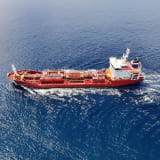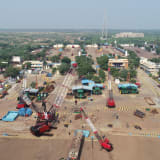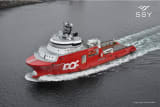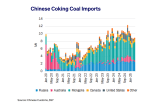
Extreme weather and what it may bring to the Chemical Tankers Market..
This summer, extreme heat and the potentially busiest ever hurricane season could significantly impact gas, power, and crop prices. US natural gas futures might surge if hot weather depletes current inventories, compounded by reduced shale basin output. Europe and Asia’s demand for liquefied natural gas, intensified by climate events, may drive prices up by 50-60%. Power grids, especially in Texas, face blackouts due to increased demand, and European nuclear plants might shut down if river water used for cooling gets too warm.
High commodity prices pose an inflation risk, complicating the Federal Reserve’s policies and affecting the US economy and election. Agriculture is vulnerable too. Oil markets also face disruptions from wildfires and hurricanes, affecting production and refining. In regions experiencing extreme heat and / or draught, plants may be forced to shut or operate at reduced capacity as happened recently with several plants in Mexico and Egypt. Inland shipping could be hindered by drought in crucial waterways such as the rivers Rhein and Danube in Europe, thus potentially leading to plant closures in Europe’s industrial heartland. This volatile climate could lead to significant market fluctuations and price surges across various sectors and regions.
The impact on maritime trade is difficult to predict because challenging situations may arise from multiple directions simultaneously. However, with the chemical tanker fleet already working at close to full capacity, any further strain could translate into firmer or higher freight rates.
By Plamen Aleksandrov, Market Researcher, Chemicals, SSY
Articles
You may also be
interested in
View allGet in touch
Contact us today to find out how our expert team can support your business













